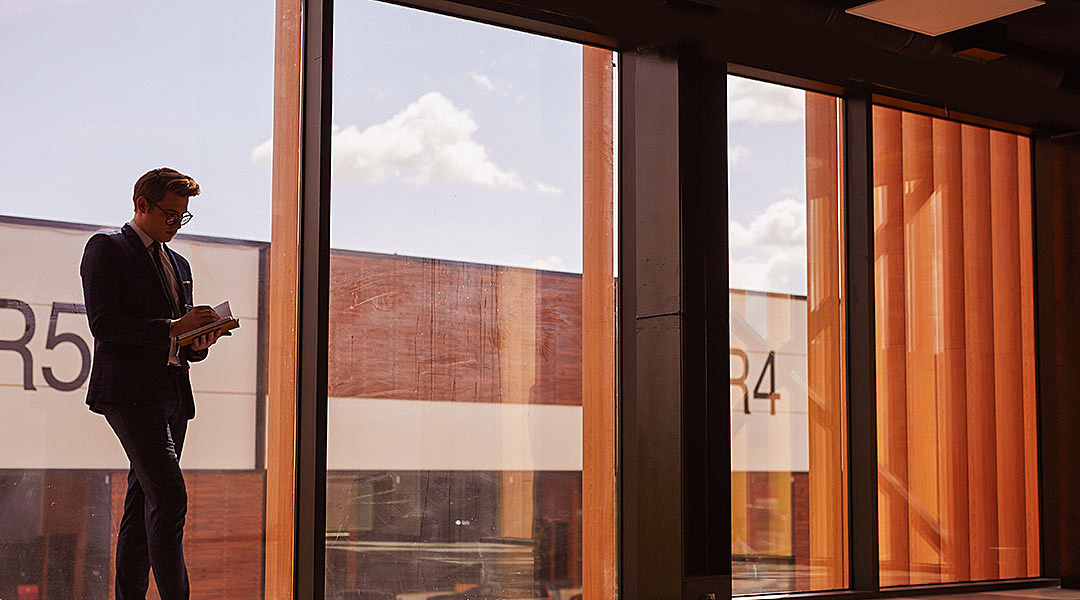Knowing how to negotiate a lease is an invaluable tool that can save you thousands of dollars. One of the main pillars of success for a business is location. Location can make the difference between success and failure. Don’t take it lightly. It is a very sensitive part of your business. In this quick reference guide we take the main factors of a lease and make them available to you.
Lease Correctly
A task that inevitably every conventional entrepreneur must face is that of leasing an establishment. Be it a warehouse, store, office, restaurant, or something similar. This factor is very important because the business literally marries the place for at least a few years. In certain cases like a restaurant, your success can be tied 100% to the location. In other cases, it can be the factor between success and failure. In any case, it is key that every entrepreneur knows at least the fundamental aspects of a lease of an establishment. There is no expensive rent or cheap rent. It is more important to pay adequate rent. Do not get confused and go to choose an establishment 100% based only on the cheapness of the rent because it can be very expensive. Remember that you are not in the business of saving on rent after all. You are in the business of selling some product or service.
Do not sign
As tempting as this may be, do not sign any lease without first verifying, verifying and understanding the main terms of the contract. At first it is very tempting because in most cases if you are interested in the place in question it is because you have already visualized your business there. So, somehow he is afraid of losing that “wonderful” place. This is normal because your entrepreneurial spirit is at its peak and you are late to start your business. Please refrain from signing any document before reviewing it. If the venue is for you, let the negotiations flow naturally without pressure. In this case, a negotiation error can cost you dearly and truncate your future. Remember that you literally marry the place, and I mean, you don’t take marriage very lightly, do you?
Rent / Cost
Perhaps this is the most obvious question for a new entrepreneur. How much does it cost to rent an establishment? There are no set prices for commercial leases. One must contact the tenant directly (in many cases, a commercial rental agent) and ask for the prices of the place in question. In most cases the price is set per square foot and is very location dependent. For example, the price in an arcade-type mall with huge foot traffic can cost up to $5 per square foot, while in an industrial area a warehouse can cost 40 cents per square foot. Here, the rule that the more demand increases, the more the price increases. We could dare to say that here the mission is to lower the price per square foot as much as possible. This stage is easy to understand because basically there is a price for the establishment. The situation here begins to get complicated when the price and details of the lease are negotiated. For example, deposits, advanced rent, the final price per square foot, additional expenses, ceilings, and commissions, among others. Below we touch on each of them for your understanding.
Time (Terms, Time)
How long should you sign the contract? Month by month, for 2, 3, 5, 10 years. It is worth mentioning that many entrepreneurs prefer to make short contracts so as not to feel with long-term obligations. The problem here is that every business takes time to establish itself, consolidate, and achieve success. If you don’t have a proper time agreement you may be legally asked to leave the facility when you are just beginning to excel. This would be very sad, but legally you could do it since you would not have a current contract. What many entrepreneurs do is lease with a contract for a couple of years with guaranteed extension clauses. This gives you the time to fully develop your business and figure out whether you want to stay or not.
Lease Renewal (Automatic Renewals)
In most leases you can ask for guaranteed renewal periods at your discretion. This way you have no obligation to stay and at the same time you have the certainty that if your business is going well, you can stay if you choose. For example, you can lease a space for 3 years with 2 renewal clauses of 2 years each. So you can try for 3 years and if everything goes as planned, you are guaranteed 4 more years. This is a clause in your favor because you are the one who decides if you want to stay there or not, with no other obligation than letting the owner know.
NNN / CAM (Common Area & Management Expenses) Additional Expenses
Most establishments have additional costs that they do not mention in the price per square foot. These expenses are called NNN/CAM and they basically mean communal area expenses. It is very important that you know and clearly know the expectations of the additional expenses because they can cause you surprises and even headaches. For example, if you plan to pay $2,000 in rent per month, but then you receive a charge of $2,900, how would you feel? Therefore, it is your obligation to ask how much these additional expenses are before signing a contract.
The additional expenses are those that are incurred by communal areas and that are distributed proportionally to the tenants of the place that share it. For example, if you rent a space in a shopping center where there are 20 spaces, the additional expenses are shared by everyone. What are these additional expenses, generally not included in the rent? Electricity, maintenance, security, insurance, water, and gardening of the parking lot, security guard, general maintenance, signs and promotions of the shopping center, bathrooms, water and taxes, among others. That is, even if you only have one rental place, your clients also use the restrooms, the parking lot, and benefit from the guard, the maintenance, and the insurance that protects you, etc.
Grace Period (Free Rent)
Interestingly, many new entrepreneurs confuse a commercial space with a residential one. In a residential lease, such as an apartment or condominium, you generally start paying rent from the first day you take possession. In a commercial place, this is not necessarily the case. You can negotiate (it is very common) to receive from one month to 6 months or more free of rent. In other words, preparing the place and starting to operate a business can take up to 6 months due to remodeling, permits, and improvements to the place. Therefore, you can request in the contract a couple of months at least as a grace period to prepare the place and not start incurring rent from the first day. In many cases the agents or owners of the place will give you a couple of months.
Deposits
Generally, when you start a lease, you will be required to pay a deposit or one month’s rent in advance. This is almost the norm. They ask for these deposits in case you do not leave the place as you found it when you entered (as is your obligation). From a simple change of paint color to new floors or wall decorations can be expensive for the owner and for that reason they will ask for a deposit when entering. This deposit ranges from 1 to 3 months rent. The recommendation here is that you negotiate the lowest possible deposit so that you do not lose capital and freeze your money. The money at the beginning is much better used in the operation of the business than in deposits that usually never come back.
Support for Improvements (Tenant Improvement)
The norm is that a place for rent is presented in what is known as “shell condition” in English. In other words, the place is delivered to the tenant with white walls, carpet or cement floor, electricity, drinking water, and a bathroom. In most cases, this condition is not what an entrepreneur seeks for his new business. For example, if you are going to start a restaurant, it is most likely that you will have walls painted in colors of your theme and style, perhaps instead of carpet you will put mosaic, a fountain, windows, pillars or things like that. These upgrades will cost you a lot of money and when you leave you won’t be able to take them with you. In essence you are improving the establishment for the benefit of the owner. For this reason, you can negotiate that the owner gives you a support or contribution for improvements to the establishment.
Suppose you will invest $50,000 in improvements to the facility. You can ask the owner for a contribution of 20% ($10,000). Most likely, he won’t give you the money, but he may give you the equivalent of a rent reduction or free months in return. You have nothing to lose by negotiating this clause for your benefit.
Agents (Brokers)
Agents are generally compensated on commission by the owner of the establishment. In other words, you can have a professional at your service, negotiating for you, without costing you a dime. Even so, even if you have an agent, it is your obligation to review and verify the clauses of the contract. At the end of the day, it’s your money, your business, and your future, don’t put it in someone else’s hands without at least checking.

